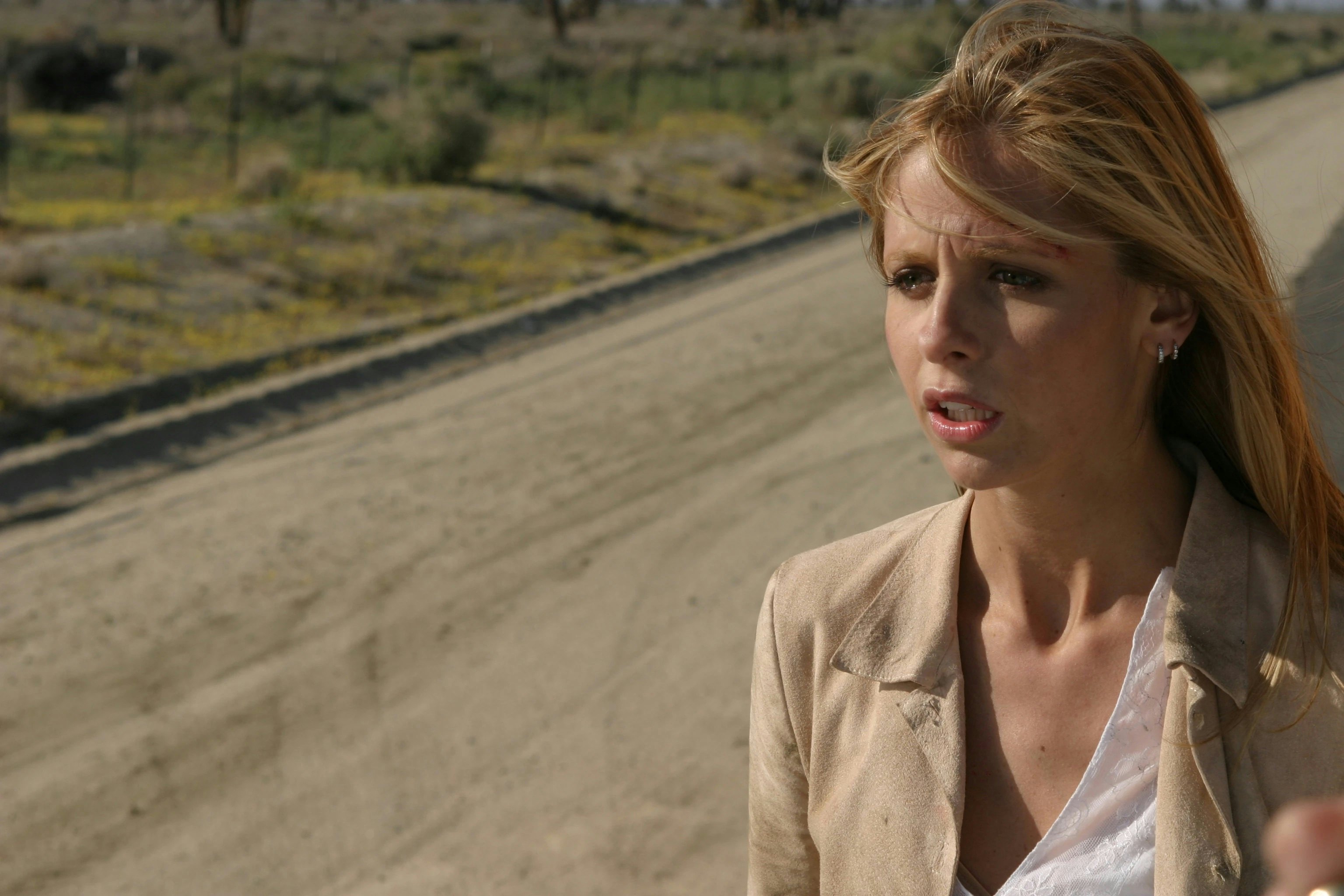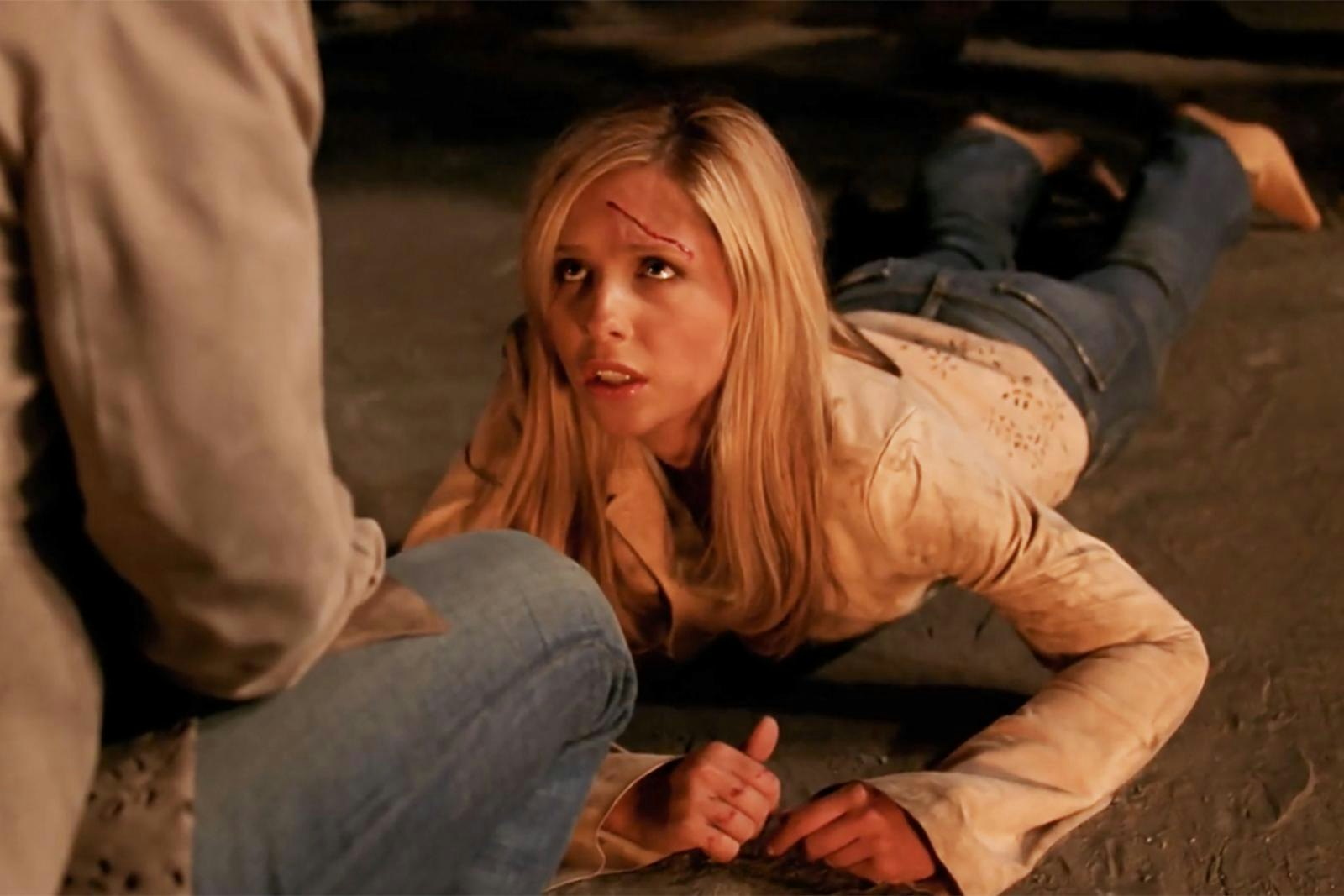
Buffy the Vampire Slayer was always a show about going against expectations. It’s built into the premise: what if the helpless blonde chased into an alleyway by monsters turns out to be the superpowered hero? Over seven seasons, Buffy would enrich this concept with its coming-of-age metaphors — high school is literally hell, adulthood is hard, your boyfriends are all soulless demons. But it still played by the rules of its world, and the fantasy genre at large. The Slayer was the one girl chosen in all the world. She alone was born with the strength and skill to hunt the vampires and stop the spread of their evil.
The Chosen One is one of the oldest tropes in the book, one that’s been subverted and riffed on in every way imaginable by franchises ranging from Star Wars to The Hunger Games. Buffy’s first subversion of the trope was always its most game-changing: the idea that the helpless blonde girl could be the hero was radical when the show started airing. But by the time Buffy reached its seventh season, we were no longer in the ‘90s. Feminist fantasy had changed, and Buffy had to prove it was still at the forefront. And with its series finale, “Chosen,” it did.

Season 7 of Buffy saw the Slayer and her Scooby Gang go up against the First Evil, a primordial force that existed long before the universe was created. Ostensibly the root of all evil, The First was non-corporeal and could only take the form of those who’d already died. The premise made for fun mind games, as well as a chance for star Sarah Michelle Gellar to play double duty (The First’s favorite form was Buffy, who’d briefly died way back in Season 1). But the circumstances surrounding Buffy’s second death causes The First to suddenly be stirred to action, using its agents of evil to target the Potential Slayers who would inherit the power should Buffy and Faith die, and wipe out the Slayer line for good.
In “Chosen,” Buffy defeats The First’s righthand man Caleb (Nathan Fillion) with the help of Angel (David Boreneaz), who pops over from his spinoff to give her an amulet meant to be worn by a “champion.” But even with Caleb defeated and a new trinket supposed to aid their final battle against The First, Buffy and her small army of Potentials expect certain death. Then The First stops by in Buffy form to goad her one last time, reciting the prophecy of the Slayer and saying, “There’s that word again. What you are, how you’ll die: alone.”
This makes Buffy realize she doesn’t have to be alone. Buffy the Vampire Slayer had long found ways to get around the solitary nature of the Chosen One narrative, first by giving Buffy her iconic Scooby Gang, then building it into the very reason she’s managed to survive for so long — she has friends, family, roots. So there’s only one natural conclusion to Buffy the Vampire Slayer: Buffy will give her power to all the Potentials.

The moment plays out in the heat of battle, as Buffy makes a powerful monologue intercut with images of young girls all over the world as they’re suddenly imbued with the powers of a superhero. “From now on, every girl in the world who might be a Slayer, will be a Slayer,” Buffy says. “Every girl who could have the power, will have the power. Can stand up, will stand up. Slayers, every one of us. Make your choice. Are you ready to be strong?”
It’s a moment that reverberates throughout the show — the Potentials get their powers in the nick of time, allowing them to beat back The First’s army of undead — and beyond. It’s clear what Buffy the Vampire Slayer means when it says girls are allowed to have power, especially when scenes flash of an abused girl stopping a man’s punch, and a girl at bat, smiling as she prepares to win the game. Now that Buffy is ending, all of its viewers should be empowered in their own lives.
Buffy Season 7 wasn’t the most enjoyable watch. Creator Joss Whedon was stretched thin between Buffy and its spinoff Angel, and smarting from the cancellation of Firefly. Sarah Michelle Gellar wanted out. The season spent its time breaking down Buffy, while giving way too much screentime to annoying characters like Kennedy and Andrew. But despite how much it felt like the final season was spinning its wheels, it was building to what would be its biggest game-changer of all: dissolving the very idea of the Chosen One. By handing the power to everyone, Buffy finally fulfills its subversive promise.







